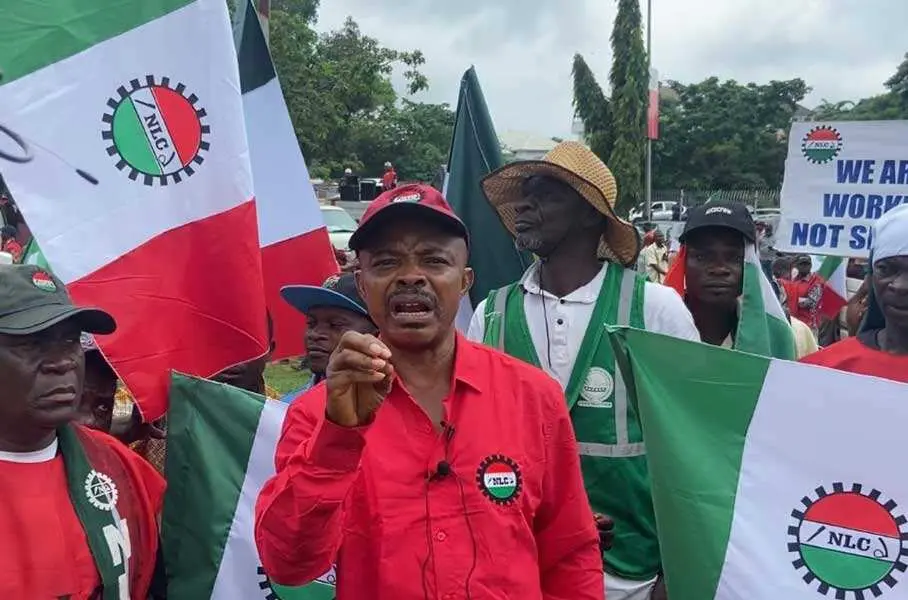The president of Nigeria’s largest labour federation, Joe Ajero, was arrested on Monday by the country’s state security service, according to the Nigeria Labour Congress (NLC). The charges against Ajero have not been disclosed.

The arrest occurred at the Abuja airport as Ajero was attempting to board a flight to Britain for union business, the NLC reported on social media platform X. The Department of State Security (DSS), responsible for the arrest, has not immediately commented on the situation.
This development comes just days after Ajero publicly criticized the government’s decision to raise gasoline prices by 39%. He had threatened to call for a strike if the price hike was not reversed. The increase in fuel prices was a key factor in cost of living protests that took place in early August.
The timing of Ajero’s arrest has raised concerns about potential government retaliation against labour leaders who oppose its economic policies. Nigeria has been grappling with significant economic challenges, including high inflation and widespread hardship among its population.
Analysts suggest that the latest increase in gasoline prices could further exacerbate inflation, which is already in double digits. Gasoline is widely used by small businesses and households to power generators due to unreliable electricity supply, making its price a sensitive economic and political issue.

The arrest of a prominent labour leader like Ajero could potentially escalate tensions between the government and workers’ unions. It may also impact ongoing discussions about economic reforms and labour rights in Africa’s most populous nation.
As news of the arrest spreads, labour unions and civil society organizations are likely to demand Ajero’s immediate release and clarification on the charges against him. The incident could also draw international attention to Nigeria’s treatment of union leaders and its approach to managing economic dissent.
The NLC, under Ajero’s leadership, has been a vocal critic of government policies that it perceives as detrimental to workers and the general population. This arrest may signal a potential shift in the government’s tolerance for such criticism.



